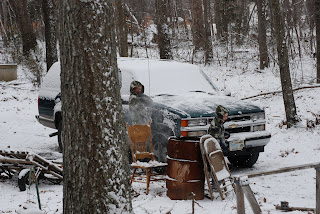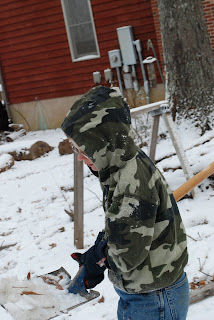
Vision Forum has given us the opportunity to review a copy of the 2008 Witherspoon School of Law and Public Policy through their affiliate program.
The Witherspoon School of Law and Public Policy is a three day conference that Vision Forum does to teach a Christian view of law. We wanted to go last year, but Daddy was working too much. In this CD set, the speakers explain that the Bible must be the foundation for our view of law. We must have a biblical worldview. They also talk about the current status of laws and court decisions that relate to different issues such as Biblical Marriage and the 2nd Amendment. The Witherspoon School is not just for lawyers, it is helpful for all Christians in deciding who they should vote for, etc.
Here are summaries of several of the messages:
Introduction to the Christian Foundations of Western Law
by Doug Phillips
This message is really an introduction to the entire album. After going through the different speakers, he talked about how we must have a biblical worldview. We can not abandon our Biblical worldview when we relate to unbelievers, even when we are witnessing to them. Mr. Phillips said that the bible is sufficient and must be our grid to interpret everything. He spoke on what our view of Old Testament law must be, that we must realize it still applies, and that we must get principles for our law from it.
Christian Jurisprudence: Biblical Law, Natural Law, or Positive Law?
by Bill Einwechter
In this message Mr. Einwechter, one of our favorite speakers, talks about biblical law, natural law and positive law. Positive law says that all law is derived from the state, and evolves and changes as the state makes new laws. Many lawyers today hold to it, and this is why they believe that they do not have to follow the intent of the founders when they wrote the Constitution of the United States. Natural law says that there are unchanging principles of law in nature, which just laws are derived from. Natural law is not to be confused with the laws of nature. Many people, from the ancient Greeks until now, have believed this. Biblical law is much different from the others; it is getting our law from the bible. Christians should believe in biblical law.
Symposium on the Reformation and Law
by Bill Einwechter and Doug Phillips
This message is a Q&A session. In it Mr. Phillips and Mr. Einwechter answer questions about many issues, including Christians in today's military, and whether or not Christians can hire women.
Christianity and the Courts
by Hon. Roy S. Moore
This is a special message by Chief Justice Roy Moore. He spoke on how God must be over our government. There was also a Q&A time. I really enjoyed it because his speaking style is easy to follow and he includes many personal anecdotes. He is an inspiring speaker because he has been tried by the fire for what he believes, which is that we must honor God in everything we do and all the decisions we make.
A Theology of Church and State
by Doug Phillips
This message is about the biblical view of the three different jurisdictions: family, church and state, and how they relate to one another. At different times throughout history, different jurisdictions have ruled over the others. For example, in the time when Roman Catholicism was dominant, the church ruled over the family and state. In the bible, we see that they should not rule over any of the others. The three jurisdictions should be equal.
The Battle for Biblical Marriage
by Jordan Lawrence
In this message Mr. Lawrence spoke on the issue of marriage being between one man and one woman. He spoke on how the bible definitely affirms that, as well as most of the state constitutions. He spoke on many of the current events relating to this, and he finished by encouraging the Christians to keep fighting the battle for traditional marriage.
You May Not Take Our Guns
by Larry Pratt
Mr. Pratt, director of Gun Owners for America, spoke on the Second Amendment: the right to keep and bear arms. Many people think that there will be less crime if guns are outlawed, but that is not actually the case. Guns stop crimes. Gun bans will not stop criminals from having guns, but prevents law-abiding citizens from being able to defend themselves. When gun bans are passed, crimes increase. Constitutionally, there should be neither a gun ban, nor a concealed carry law. In one part of the message he mentioned that one political leader said during a speech that anyone who thought that they needed to have a gun to defend himself was paranoid. At that time, that person was surrounded by six armed bodyguards. He also talked about the current state of the gun laws in the United States.
Other Messages
What the Bible says about Female Magistrates by Bill EinwechterDefamation in the Blogosphere by Josh Carden
Biblical Law, Ethics, & Public Policy for Lawyers by Doug Phillips
Biblical Law, Ethics, & Public Policy Recap by Doug Phillips
The Significance of the Electoral College by Howard Phillips
Genesis & Geneva: The Emergence of Liberty in the West by Doug Phillips
Spheres of Sovereignty: Church Discipline, Autonomy, and the State by Bob Renaud
The State of Parental Rights in Light of the Texas Polygamy Case by Don Hart
You can buy the CD set here, or download it from behemoth here. If you would like to receive opportunities like this, join the Vision Forum Affiliate Program.



















































